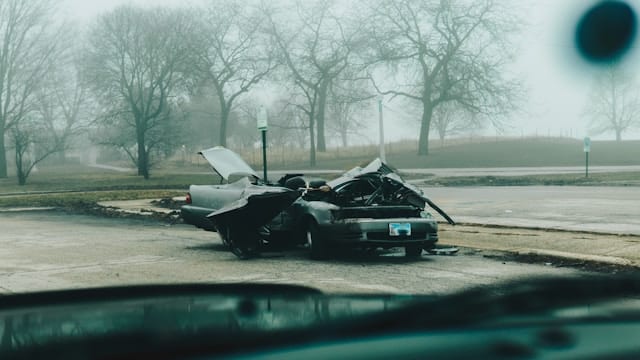What to Do If Your Car is Totaled: Repair vs. Replacement Options
 Discovering that your vehicle has been declared totaled can feel overwhelming. Insurance companies determine a car as totaled when the repair costs exceed a significant percentage of the car’s actual value. After receiving this news, deciding between repairing the vehicle or replacing it requires careful evaluation of multiple factors. Understanding the implications of each option will help in making the best choice based on financial and practical considerations.
Discovering that your vehicle has been declared totaled can feel overwhelming. Insurance companies determine a car as totaled when the repair costs exceed a significant percentage of the car’s actual value. After receiving this news, deciding between repairing the vehicle or replacing it requires careful evaluation of multiple factors. Understanding the implications of each option will help in making the best choice based on financial and practical considerations.
Assessing the Damage
Insurance Definition of a Total Loss
Insurance providers classify a car as totaled when the cost of repairs approaches or exceeds a predetermined percentage of its actual cash value (ACV). This percentage varies by provider and state regulations, typically ranging from 60% to 80%.
Evaluating Structural Integrity
A vehicle that has sustained major frame damage may no longer provide the same level of safety, even after repairs. If the structure has been compromised, replacing the car may be the better long-term option.
Hidden Mechanical Issues
Some damage may not be immediately visible. Internal components, such as the engine, transmission, or electrical systems, could have sustained issues that significantly affect future reliability. Professional inspections will reveal the full extent of the damage.
Repairing a Totaled Car
Salvage Titles and Value Reduction
If the decision is made to repair the vehicle, it may receive a salvage title. This designation indicates that the car was previously considered a total loss. A salvage title affects resale value and may limit insurance coverage options.
Out-of-Pocket Costs
Even with an insurance payout, restoring a totaled car might require additional out-of-pocket expenses. If repair costs exceed the settlement amount, personal funds will be needed to cover the difference.
Sentimental or Unique Value
In some cases, a car may hold sentimental value, making repair an emotional decision rather than a financial one. Classic or rare vehicles may justify the investment, especially if their market value is expected to appreciate.
Replacing the Vehicle
Using the Insurance Settlement
Insurance companies typically offer a payout based on the car’s ACV before the accident. This amount can be used toward purchasing a replacement vehicle. If the payout is lower than expected, negotiation with the insurer may be possible.
Upgrading to a Safer or More Reliable Car
Choosing replacement over repair presents an opportunity to upgrade to a newer, safer, or more fuel-efficient vehicle. Modern cars come with enhanced safety features and better reliability, which may outweigh the cost of fixing an older model.
Financing Considerations
If a loan was still owed on the totaled vehicle, the insurance payout may not cover the full balance. In such cases, gap insurance can help bridge the difference. Otherwise, financing a new vehicle might be necessary.
Making the Right Decision
Comparing Costs and Benefits
Before deciding, compare the total cost of repairs against the value of a replacement. Consider long-term reliability, insurance implications, and potential resale value. A well-informed choice ensures financial stability and peace of mind.
Consulting Professionals
Speaking with an auto body specialist and insurance representative will provide clarity on repair feasibility and insurance settlement options. Professional advice can prevent unexpected financial burdens.
Conclusion
Choosing between repairing or replacing a totaled car requires thoughtful evaluation. Financial factors, safety concerns, and long-term reliability should all be considered before making a final decision. Understanding all available options ensures the best outcome, whether repairing the vehicle or selecting a replacement.

